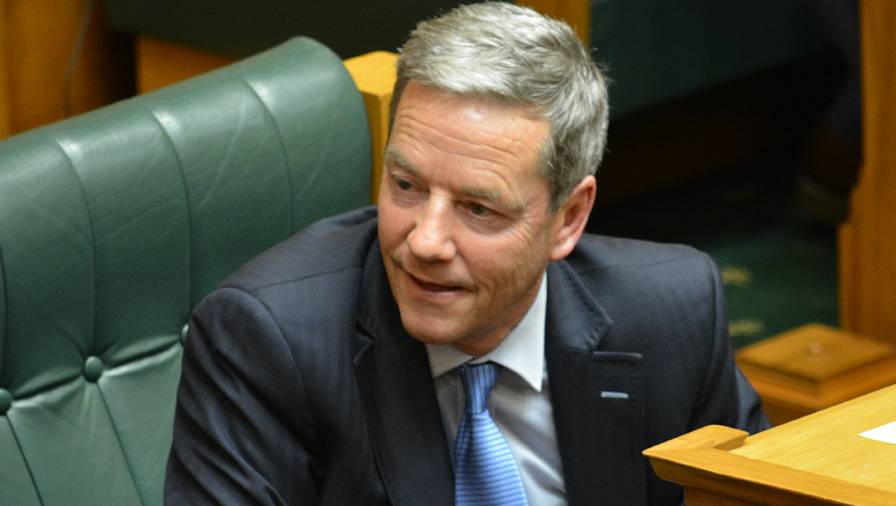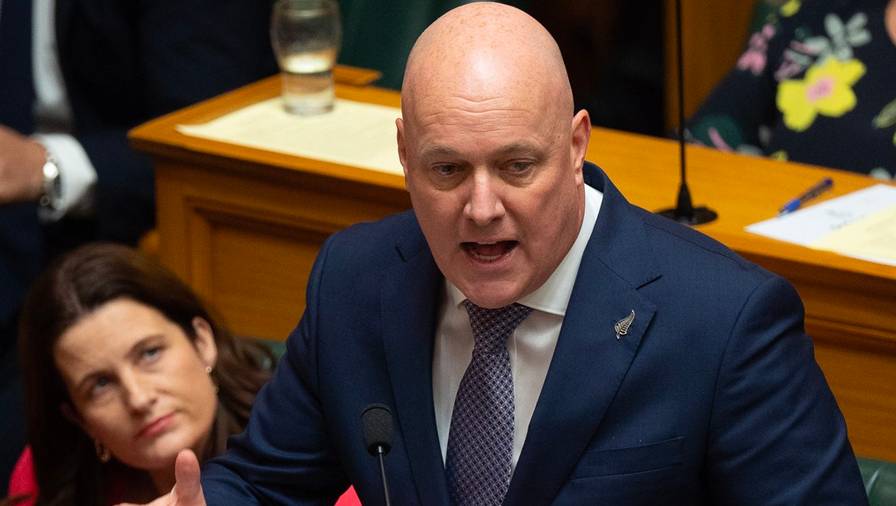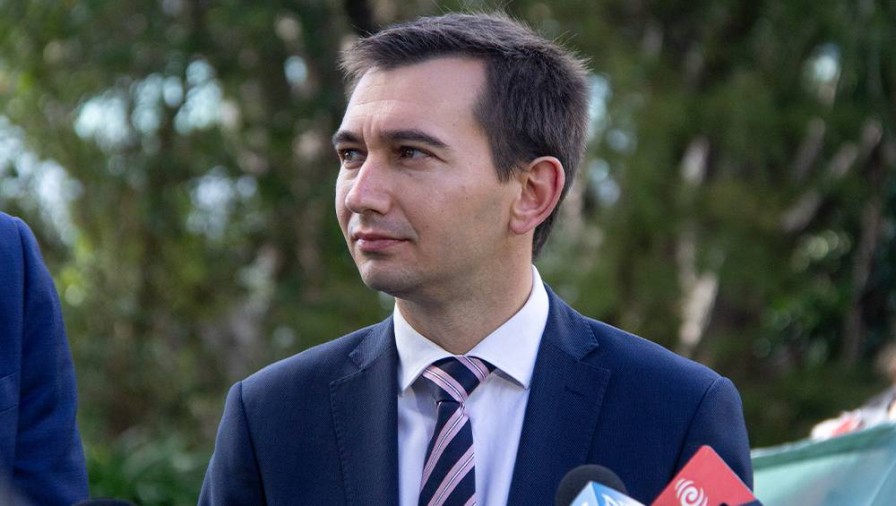Three strikes, one strike, Wellington knows best, bold ideas
ANALYSIS: Opponents and supporters of three strikes criticise the Government’s legislation.
WATCH: NBR political editor Brent Edwards speaks with Simon Shepherd.
ANALYSIS: Opponents and supporters of three strikes criticise the Government’s legislation.
WATCH: NBR political editor Brent Edwards speaks with Simon Shepherd.
The coalition Government is doubling down on its tough law and order approach, making amendments to the three strikes legislation to ensure more people get caught in its net.
Associate Justice Minister Nicole McKee announced at the beginning of the week that the Cabinet had agreed to amend the Sentencing (Reinstating Three Strikes) Amendment Bill by lowering the qualifying sentencing threshold and by reactivating warnings from the previous regime where offenders met the threshold.
Instead of the threshold being triggered by an offender’s first offence facing a possible sentence of more than 24 months, that would be lowered to 12 months. But for the second and third strikes, the threshold would remain at 24 months.
“While the qualifying sentence exists to ensure severe penalties are reserved for serious cases, we agree with submitters that this was set too high and are lowering it to make sure that offenders face appropriate consequences for serious violent and sexual offending,” McKee said.

Sensible Sentencing Trust spokesperson Stephen Franks.
The change has been condemned by both critics and supporters of the three strikes legislation.
Sensible Sentencing Trust spokesman Stephen Franks – a former Act MP – calls the changes a ‘triumph of public service bureaucrats over evidence-based policy.
“The Government just doesn’t get it. The whole idea of three strikes is that the strike occurs upon conviction, not based on the sentencing judge’s discretion,” Franks said.
He said that, under the Sensible Sentencing Trust’s modelling, just seven of the 25 ‘third strikers’ under the previous legislation would qualify for a third strike under the Bill as originally drafted.
“With these changes, it’s still just eight – less than a third who would face the deterrent of a third strike under the original law,” he said.
Franks said while National and Act talked tough on crime, they were failing to deliver.
Labour’s justice spokesperson Duncan Webb has a different view.
“They are beating the ‘tough on crime’ drum to cover for wider government failures and misbehaviours. The first three strikes bill was a failure and the proposed changes to this bill will only make it worse,” Webb said.

Labour Party justice spokesperson Duncan Webb.
He criticises the process, saying the Government is making changes based on what it claims the Justice Select Committee heard during the submission phase, when the committee has not yet reported back on the bill.
“The proper process to have input is through the select committee, not a selection of private emails to the Minister,” Webb said.
While Opposition MPs are opposed to the three strikes legislation, they were less forgiving of Small Business Minister Andrew Bayly’s one strike from last week.
All this week, Bayly and Prime Minister Christopher Luxon have been under pressure over revelations last Friday that the minister made disparaging comments to a worker at a Marlborough business Bayly visited earlier in the month.
Other news media that have got hold of the worker’s unredacted letter have confirmed the workplace was Spy Valley Wines.
In a letter that has been widely publicised, the unnamed worker said he had felt “degraded, embarrassed, and deeply disrespected” in front of his colleagues after being called a loser and being told to “take some wine and f*** off” by Bayly.
Luxon had to defend Bayly at his post-Cabinet news conference and then both he and Bayly were asked about the incident in Parliament on Tuesday and Wednesday.
The Opposition focused on whether Bayly had been drinking or not prior to the interaction with the worker. It prompted Bayly late on Tuesday night to make a personal explanation to the House.

Small Business Minister Andrew Bayly.
“I was asked today, had I had any alcohol with, sorry, had I had any alcohol at the beer garden or winery I visited that day. I took this to mean whether or not I’d had any alcohol prior to the incident that led to the complaint. Therefore, I correctly answered no. However, for the avoidance of any doubt, after the incident and at the end of the day, I had a small wine tasting,” Bayly said.
It did not satisfy Labour MPs who see the incident as an opportunity to question not just Bayly’s judgement, but that of the Prime Minister.
Labour Party leader Chris Hipkins knows all too well how a badly behaving minister can upset a prime minister’s equilibrium.
But, with Parliament in recess, it is difficult to see how the complaint can be stretched much further. Bayly has apologised and – more importantly, from Luxon’s perspective – promised such behaviour won’t happen again.
Hipkins will watch with interest given he received similar sorts of assurances last year from some of his errant ministers. He found to his chagrin those assurances were worthless.

Prime Minister Christopher Luxon has an assurance from Bayly he will not behave badly again.
Meanwhile, Wellington really does know best for Wellington. This week, after a few weeks of sabre rattling, Local Government Minister Simeon Brown announced he was appointing a Crown observer to the troubled Wellington City Council. The last straw for the Government was when the council reneged on an earlier decision to sell its shares in Wellington Airport as part of its long-term plan.
It follows a couple of years of difficulty under mayor Tory Whanau’s leadership, although the council was hardly a model of good governance in the years before that.
Brown also cited the council’s financial planning for water infrastructure investment, something the mayor and other councilors disputed. Notwithstanding that, they will now have a Crown observer looking over their shoulders and reporting back to Brown.
For a government so keen on localism, interfering in the council just a year before voters get to make their own judgement appears heavy handed. But the observer only has the power to advise the council, not the power to make decisions.
Presumably, though, if Brown gets reports from the observer suggesting the council is failing to make satisfactory progress, the Government would then consider the more draconian step of installing commissioners to run the capital city, just as the previous Labour Government did in Tauranga in 2021.
The former National Government did the same thing in 2010 when it appointed commissioners to run Environment Canterbury and fix Canterbury’s “significant water issues”, so this is not an unprecedented response.

Local Government Minister Simeon Brown.
This week, Finance Minister Nicola Willis told public servants not to be backward in coming forward with bold ideas.
In a speech to the Institute of Public Administration on Thursday, she said she respected public servants’ enduring commitment to public service and the integrity with which they approached their work.
But Willis does have a gripe about the sort of advice officials give ministers, saying it is often too cautious because public servants seem risk averse.
“It is though they want to protect politicians from themselves.”
Willis does not want that and said public servants need to know they now have a government that is prepared to do bold things.
Finally, the week ended with PM Luxon and Foreign Affairs Minister Winston Peters in Samoa for the Commonwealth Heads of Government Meeting. Luxon’s first engagement was to visit Operation Resolution, the response headquarters to the HMNZS Manawanui sinking.
Next week, Parliament is in recess before MPs come back for a three-week sitting period in November. After that, there are just two more sitting weeks in December before the extended Christmas break.
Beehive Banter is hosted by Simon Shepherd, with NBR’s political editor Brent Edwards.
Sign up to get the latest stories and insights delivered to your inbox – free, every day.